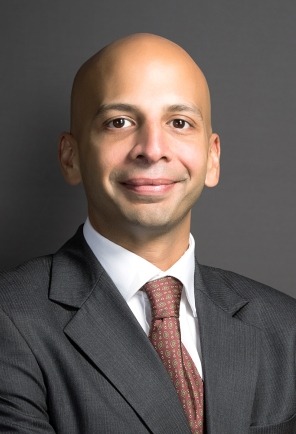Turnaround Strategies Around the Globe: A Look at India
Market demands, financial conditions and local cultures around the world bring distinct challenges to distressed companies, but certain turnaround strategies are universal. In this article, Action Matters sits down with leaders from the firm’s Turnaround and Restructuring practice to discuss lessons learned from the trenches, and the principles they consider binding when it comes to rescuing struggling companies.
In this edition, we spotlight India and speak with Managing Directors Sankar Krishnan and Nikhil Shah from A&M’s Indian headquarters in Mumbai for a special look at a turnaround situation involving fraudulent accusations brought by a former employee against senior management at a local textile manufacturer.
Q. Alvarez & Marsal has been growing an established Turnaround and Restructuring practice in India since 2008. Can you tell us a little bit about the current distressed landscape there and how it has changed since?
The biggest challenge in India in the distressed arena is the increase in non-performing assets (NPAs). The gross NPA in the Indian banking system currently stands at approximately $133 billion. Two-thirds of these NPAs are owned by public sector banks. India’s central bank, the Reserve Bank of India (RBI), has proactively announced several regulatory changes over the last 18 to 24 months to help banks control and reduce their NPAs. Unfortunately, the laws governing the recovery of debt by the lenders are outdated, combined with a judicial system that is not effective in handling the enforcement mechanisms in a timely manner. The government has recognized that there needs to be drastic change in the bankruptcy laws which will aid in faster revival or liquidation of sick businesses. It is anticipated that such a law could be enacted in the next six to nine months.
Q. Recently, A&M was called upon to investigate claims brought by a former employee of irregular activities allegedly involving the senior management of a textile manufacturer. The allegations were serious and the bottom-line impact was potentially detrimental. Talk to us about how you approached the investigation. What aspects of this case made it unique?
The forensic activities were conducted by A&M’s Global Forensic and Dispute Services team in the U.S., supported by professionals from the firm’s India office. Major procedural violations were identified during the investigation process and proper actions were taken to correct the accounting impact immediately. We also implemented policies and procedures to prevent such events from occurring in the future.
Q. A&M likes to say that our firm is rooted in a turnaround and restructuring heritage. We have built a reputation for providing leadership, problem-solving and value-creation to underperforming and robust companies alike. What would you say is A&M’s unique value-proposition when it comes to rescuing companies? How were these traditional approaches applied to this case?
We applied A&M’s proven methodology of crisis management, stabilization and development of a short to medium-term plan. Our first priority was to preserve and generate cash in order to stabilize the business. We conducted several town hall meetings with the staff and workers in the factory, as well as reached out to the customers to assure them that we would continue to deliver quality product and meet on-time delivery. We also had daily and weekly communication with stakeholders of the business.
Q. INSEAD, a virtual worldwide business school, recently spotlighted you for your work around this case. What advice do you have for new and upcoming turnaround specialists as they embark on this rapidly-changing terrain?
Prioritize your activities in such a way to stabilize the situation. Think cash, cash and cash. Liquidity management and planning is key. Communicate with employees, customers and stakeholders, and quickly develop short and medium-term plans to improve operations, including elements such as cost reduction and the sale of non-core assets.
Click here to learn more about A&M’s Turnaround and Restructuring practice.
Visit the INSEAD web page to watch Sankar and Nikhil’s sit-down interview with Claudia Zeisberger, INSEAD Senior Affiliate Professor of Decision Sciences and Entrepreneurship and Family Enterprise and Academic Director of INSEAD’s Global Private Equity Initiative (GPEI), one of INSEAD’s centres of excellence.

